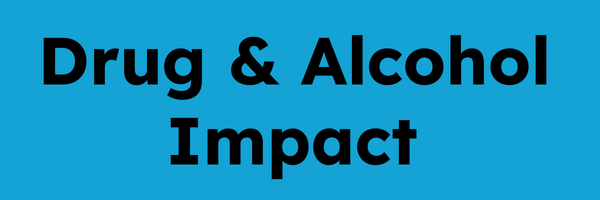New research on students' experiences of drugs
.png)
I’m so excited to be sharing SOS-UK's first piece of research into student drug use with you. Over the last 10 years students' unions and universities have learnt so much on tackling alcohol related harm and building inclusive campuses. Many students' unions and universities have worked hard to change how alcohol related issues are treated on campus, taking a non-judgemental evidence based approach to designing interventions that seek to support not scold students. There’s still a way to go, but this step-change in the sector has paved the way for considering the way we treat student drug use, and question whether the zero-tolerance approach that most of the HE sector have taken for so long is fit for purpose.
Despite decades of our universities taking the ‘just say no’ approach, NUS’ 2018 research paper ‘Taking the Hit’ and our survey this year have shown that drug use is, whilst infrequent, fairly common. NUS and SOS-UK believe a zero-tolerance stance is harmful and damaging as it prevents students in need of support from reaching out, fearing they may be punished. It’s in the best interest of our students for SUs and universities to move away from a moralistic and punitive stand to seeing drugs advice as a key component of student health and wellbeing support.
We do however, acknowledge the challenges in changing attitudes and practices around drugs. To help and guide institutions and encourage the sharing of best practice we launched our new support and institutional change pilot programme, Drug and Alcohol Impact in November 2020. Drug and Alcohol Impact supports universities and students' unions to work in partnership to get to grips with what student drug use looks like on their campus, and to design effective interventions to reduce the harm students who choose to take drugs face.
We’re so proud of the work that the pilot partnerships at Keele University, The University of West England, The University of Leeds and the University of East Anglia have done so far and we look forward to building upon this work in the next academic year to ‘build back better’ post-Covid restrictions.
This year’s data should be seen within the context of COVID, which will undoubtedly have changed the drug use of many students, but we hope it provides a useful snapshot to help universities and SUs plan their approach to improving the health and wellbeing of their students as they return to campus.
The countdown to the start of the next academic year is on, and many experts believe we could see an increase in alcohol and drug related issues. Many of the new inset of freshers will have turned 18 during lockdown, and will be arriving at university with less experience of nightlife and their own tolerance. Many of this year’s freshers feel they have ‘missed out’ too, and are looking forward to making up for lost time. Alongside this we’ve seen a huge increase in students and young people reporting mental health issues during the past year, whilst the capacity of mental health services has been greatly reduced. In an NUS survey in November, over 50% of students reported a decline in their mental health during COVID. We know from our research that some students use drugs and alcohol to help them deal with poor mental health, but this can have unintended consequences and can worsen mental health in the long run.
We need students' unions, universities and their local communities to work together to provide support for students coming back to campus, and non-judgemental, effective support for students around drugs and alcohol should be part of it.
Find the full details of our findings in our research report, or read more about our alcohol, drugs and student wellbeing programmes.


